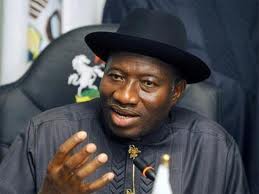 The Federal Government is planning to seek approval from the National Assembly (N/A) to increase a planned $100 million diaspora bond. The diaspora bond is to enable Nigerians living abroad to partake in developing the nation’s infrastructural needs. Director General, Debt Management Office (DMO), Dr. Abraham Nwankwo disclosed this in an interview with Bloomberg, saying the amount will be set on or before June, 2014. According to him “There are possibilities that we could go for more. The market is telling us, ‘look why are you just going for $100 million since it’s diaspora focused? Suppose they want to invest more in the Nigerian economy, won’t you frustrate them?’”
The Federal Government is planning to seek approval from the National Assembly (N/A) to increase a planned $100 million diaspora bond. The diaspora bond is to enable Nigerians living abroad to partake in developing the nation’s infrastructural needs. Director General, Debt Management Office (DMO), Dr. Abraham Nwankwo disclosed this in an interview with Bloomberg, saying the amount will be set on or before June, 2014. According to him “There are possibilities that we could go for more. The market is telling us, ‘look why are you just going for $100 million since it’s diaspora focused? Suppose they want to invest more in the Nigerian economy, won’t you frustrate them?’”
The federal government returned to international capital market for the first time in two years in July, issuing $1 billion in Eurobonds to fund power projects in an economy set to grow 6.7 percent this year, according to the World Bank. When the diaspora bond was announced in August, 2013, the DMO said the funds would be used to finance capital projects. The federal government doesn’t have plans this year to sell another conventional Eurobond until the diaspora issuance and an 80 billion-naira ($502 million) offering of global depositary receipts planned for the first half are complete, Nwankwo said.
On Islamic debt, Nigeria’s outstanding public debt stock was 8.3 trillion naira as of Sept. 30, 2013 with external borrowing accounting for 1.3 trillion of the amount, according to the agency. The yield on Nigeria’s $500 million in Eurobonds due July 2023 declined seven basis points, or 0.07 percentage point, this month to 5.85 percent by 9:46 a.m. in London. The DMO established a desk seven months ago to look into a possible federal government sale of Islamic debt, or sukuk, said Nwankwo.The Securities and Exchange Commission, SEC approved rules for selling bonds that comply with Shariah law in February last year in a country where about half of its about 170 million people practice Islam. Osun state, an inland region in Nigeria’s southwest, issued the nation’s first sukuk, selling 10 billion naira in September at a coupon of 14.75 percent.
“The sukuk is an area we want to go into to diversify the sources of funding,” Nwankwo said. “It’s most unlikely we issue federal government sukuk in 2014, but I believe in 2014 we will have been able to organize ourselves to have a framework and a strategy of what we want to do with and about sukuk and related instruments” Nwakwo noted.

